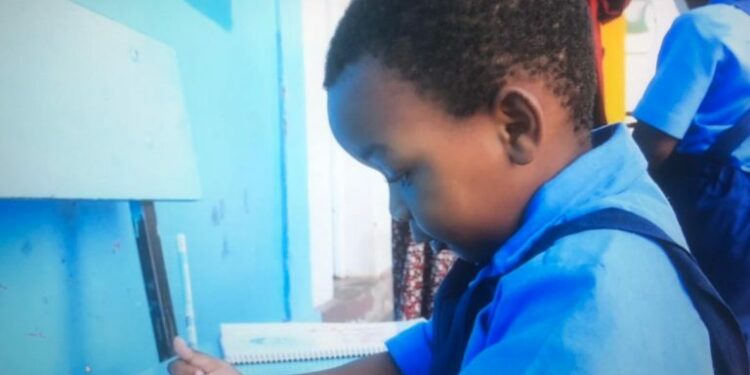The Adventist School of Malabo has identified an exceptional student in its classroom: Julio Obiang, just three years old, who has demonstrated advanced cognitive skills for his age. According to his teacher, the young boy not only reads and writes fluently but also masters the multiplication table, a rare achievement for children his age.
China: Innovation and technology mark the Year of the Snake
His parents, Malaquías Mangué Obiang and Eulalia, say they noticed his abilities when he was just two years old. Instead of choosing traditional children’s content, they downloaded educational videos on mathematics and language, discovering that their son not only memorized the information but also understood and applied it. “We thought he was just repeating what he saw until we realized he was saying it because he understood it,” they recount.
The child’s teacher believes that Julio is intellectually above the level of his current class, which causes him to become bored in school. “It’s amazing to see a child his age work so well. He should be in first grade,” says the educator. However, she also points out that despite his academic ability, Julio still has aspects to develop that are appropriate for his age.
Cases like Julio’s reignite the debate on educating children with high intellectual capacities. Experts suggest that these students require personalized educational plans that allow them to develop their potential without affecting their social adaptation.
The phenomenon of child prodigies is rare, but when they are identified, it is crucial for institutions and families to work together to ensure their integral development. In Malabo, Julio Obiang’s story could mark a turning point in the identification and management of gifted children within the educational system.









